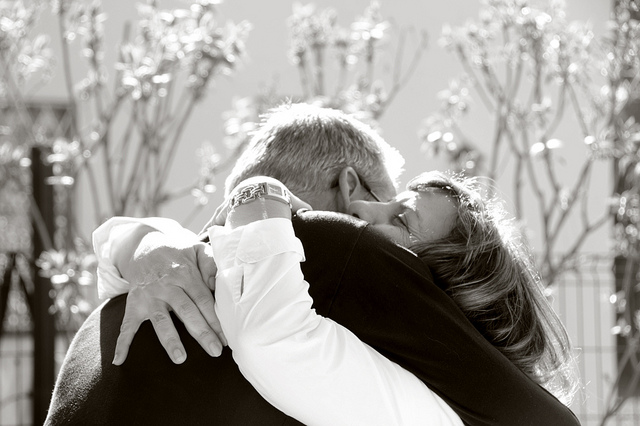Demetri Martin has a great comedy sketch where he talks about the difference between simply saying you’re sorry and the genuine act of apologizing.
Martin says: “Saying, ‘I’m sorry’ is the same as saying, ‘I apologize.’ Except at a funeral.” If that doesn’t sink in right away, give it a second. It’s the difference between remorse and responsibility. When it comes to apologizing to others, we are more often concerned with who is to blame than the feelings of the blamed.
My wife woke up the other morning from a dreadful dream. In her dream, I died. I guess I should be glad that it wasn’t a dream where she murdered me. Anyway, she woke up sullen and hurting. It’s funny—or maybe not—that dreams make us feel strong emotions even when they are not real.
She woke up sad and felt the solitude of a reality that didn’t exist. I could have sat there and logically explained how she shouldn’t feel that way and that her emotions were unjustified because I was perfectly fine, but that would not have connected with what she was experiencing in the moment. Instead, I simply said, “I’m sorry I died, I’ll try not to do it again.” Then, I gave her a hug, reassuring her that I was very present and very alive.
It wasn’t my fault. I didn’t do anything wrong. Why would I say sorry for something I didn’t do or that wasn’t even real?
In a situation like this, the apology is not about propriety or legitimacy, but it is about feelings and relationship. Sometimes the power of words is far greater than the assertion of truth and the correctness of thinking.
Movies like The Good Lie show us that telling a lie to help someone in need can be a good thing. I think the chronicles of Holocaust survivors give proof of that even more so. What about taking the blame for something that you don’t deserve? How does that help anyone?
Well, I took the blame for dying in my wife’s dream. It showed her that I was listening and that I cared. I know that this example was an effortless apology for me. What about when it is much harder?
I have seen individuals stand before a group of victims and apologize on behalf of the abusers for the wrongs that were done—knowing full well that they were not responsible. Even the group was aware that they were not the perpetrators, and, still, the tears began to flow and the door was opened for forgiveness and healing. In this situation, it wasn’t about taking on the responsibility of the offense. It was about giving space for the wounded to let go of the pain and allow recovery to begin. Grace Cooley has a great article along these lines here on elephant journal.
I have witnessed a sibling take the blame for the other to protect them. I have watched managers take the responsibility for department failures when it wasn’t their fault. These scenarios had real wrongs being committed, but the blame was taken by the innocent. Each of these situations was about looking at the greater good and the hope that something far better would come of it.
We don’t always have to be right to do the right thing.
I know a man who took on the sins of the world and died unjustly and yet willingly so that forgiveness could happen. Deity and resurrection aside, would you want the shame and blame of billions of wrongs put on your shoulders even for just a mere moment? Love was the motivation and relationship was the goal. We are so often concerned about being right that we can forget that being in relationship is far more important. What good is right when you are all alone?
Now, I do not believe in apologizing for placation or abdication when the other party is being hostile or abusive. I don’t think we should give in because we are being bullied or are living in fear. These are situations where a third party or counsel would be helpful. We have to be careful to draw a distinction here.
I’m talking about close relationships that matter, that have history and depth. Sometimes, winning an argument isn’t the right thing to do.
Sometimes…
Sometimes…people just need their feelings validated. They need to be heard. They just want to know someone cares even when they know they might be wrong.
I’m wrong a lot. Trust me. I am far from being an innocent man, so if I take reproof for something I didn’t do so be it. If it helps to bring unity, healing or love to a situation. I deserve more blame than I have received. I have received more grace than I deserve. What’s a little mud on the face when life matters so much more?
I don’t plan on dying anytime soon. My wife always says that, if I die before her, she will bring me back to life just so she can kill me for dying. I know that is her way of saying that she loves me and doesn’t want to lose me. Maybe I need to apologize in advance for my untimely death. That way she will know that I love her too. It’s never too late to say the words, “I’m sorry,” even when it isn’t your fault.
Those simple words can go a long way to mending bridges, healing wounds and bringing comfort to others.
~
Author: Jim Wern
Editor: Travis May
Image: Flickr/Tania Cataldo







Read 2 comments and reply